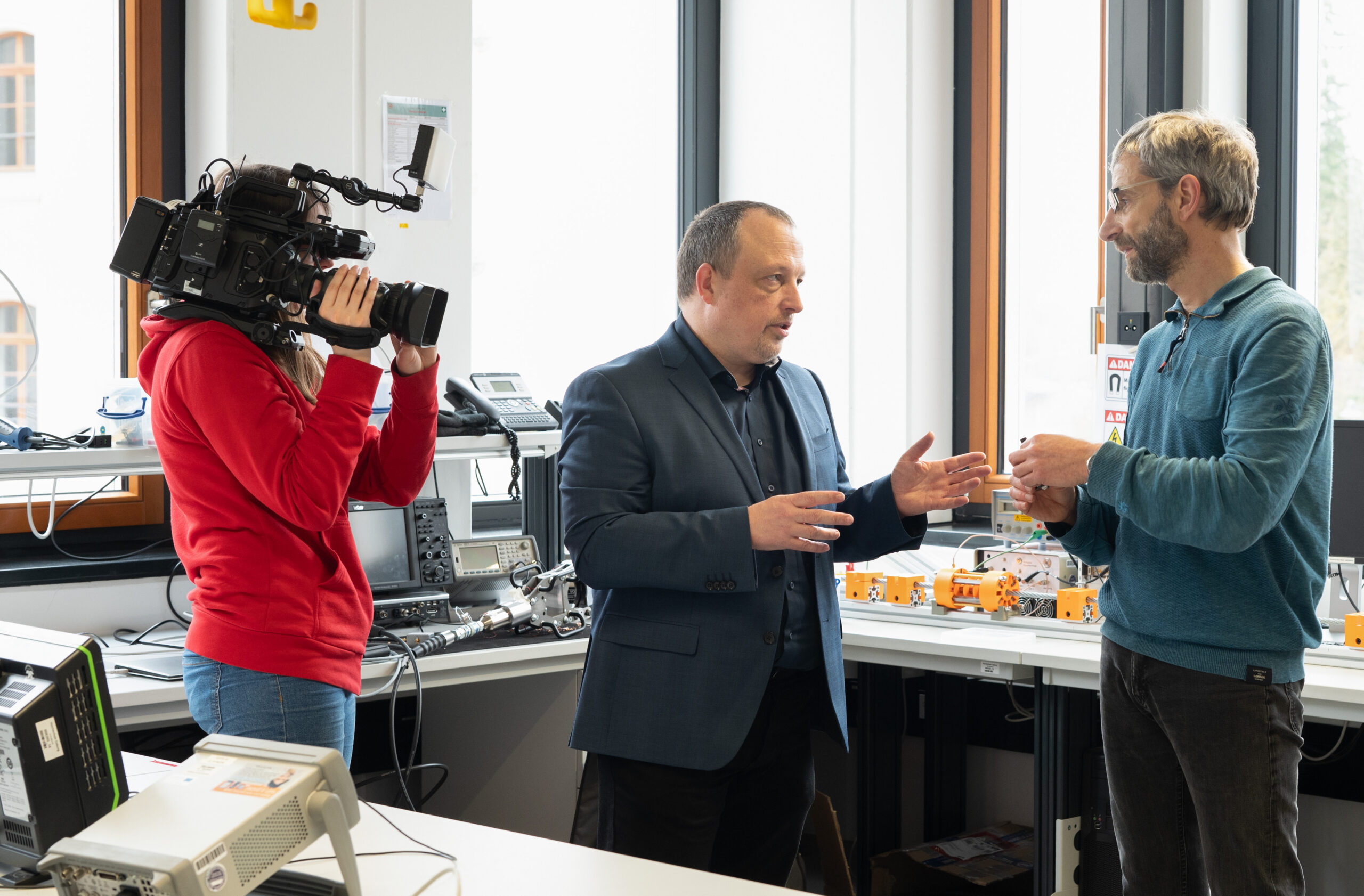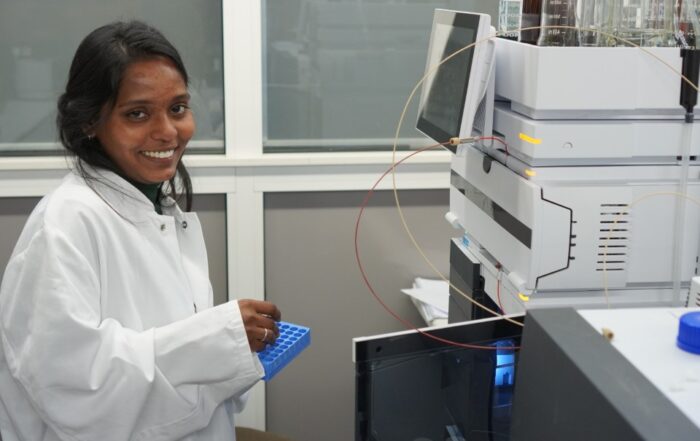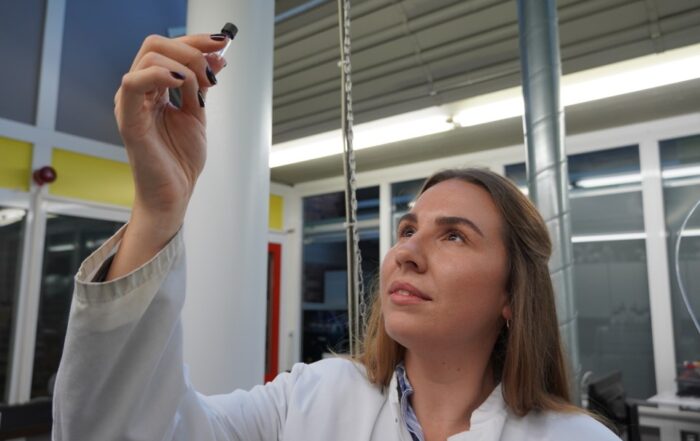27. March '24
If aquatic ecology targets are missed, substance inputs are one of the main causes.
To ensure that fewer substances end up in bodies of water, the input pathways and deposition areas must be made visible and balanced.
Is citizen science a way of collecting the necessary data?
This is the subject of a new research project that was launched at Coburg University of Applied Sciences in March.
This is also the subject of the latest contribution to the science program 4you on TV Oberfranken.
The German Federal Environmental Foundation (DBU) is funding the project “Monitoring of sediment inputs in stagnant waters using simplified echo sounders as a decision-making aid for necessary countermeasures”.
The detection and recording of input paths and sedimentation areas depends on which measurement technology is available.
If the costs are too high, the cause of problems in the water system is often not investigated consistently enough or not continuously monitored.
Two professors at Coburg University of Applied Sciences are now investigating whether citizen science is a solution: Prof. Dr. Andreas Weiß specializes in hydraulic engineering, urban water management and surveying.
Prof. Dr. Klaus Drese is Professor of Sensor Technology and Analytics and Head of the Institute for Sensor and Actuator Technology (ISAT).
The integrative cooperation enables interdisciplinary work and ensures the consideration of different perspectives on the research topics of measurement technology and water management.
Together with their teams, Weiß and Drese want to find out whether fish finders can provide useful data for research.
Private individuals use such systems when fishing.
How science uses private observations or measurements
Fish finders are echo sounders that are primarily used to identify and locate fish.
In addition, an integrated fish finder echo sounder also provides information about water depth and bottom conditions or shows depressions as well as elevations and changes at the bottom of the water.
The results of the measurements can be visualized in depth maps and thus provide a supportive function for water body managers.
The aim of the Coburg project is to examine whether such systems can be used in principle and whether there are fish finders that can be used in a targeted manner so that their data can also be used as a source of information and decision-making.
The investigations are being carried out on local standing waters such as the Goldbergsee and Froschgrundsee lakes.
Such citizen science approaches can offer scientists the opportunity to use private observations or measurements as support.
By analyzing the measurement data, the Coburg project aims to derive new suitable measurement parameters that are most representative of the soil profile and thus the sedimentation process.
A matrix of measures will be developed depending on the recorded entry points and causes.
The measures include organizational, usage-oriented and structural considerations.
As the project advisory board, the Kronach Water Management Office is providing advice and support with its technical expertise.
Television report on the project
The film feature by TV Oberfranken in the magazine “4you” will be shown on Wednesday, March 27 at 6.30 pm on cable and at 7.30 pm on SAT (FrankenPlus) and will then be available in the TVO media library: http://www.tvo.de/mediathek/kategorie/sendungen/4you/.






